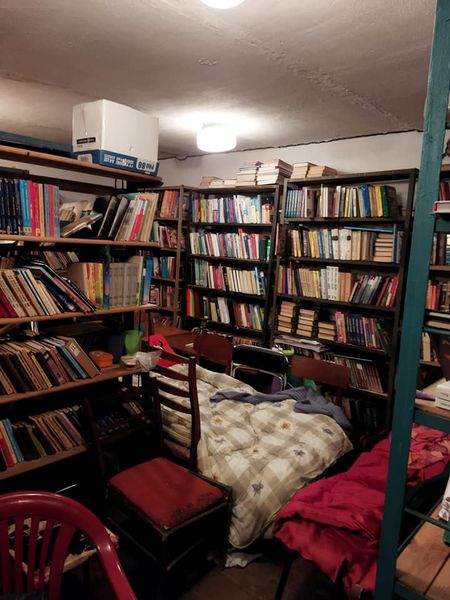It’s seldom easy to get the mainstream press to cover library stories. The Guardian is better than most. And it has started off December with – we hope – a message that can’t be brushed aside.
A Guardian leader on Saturday 3 December spelled out the seriousness of the current situation. It refers to the mass closures during “austerity” up to 2019. It links this to the loss of a quarter of their funding. This point is often overlooked in clever-dick analyses that see any decline as proof of libraries’ “irrelevance”.
Then it brings us sharply up to date: “It has taken the catastrophic cost of living crisis of the last few months to reassert the claim of the 3,000 surviving outlets to be the beating heart of their communities: places where people can go not only to find books, information and internet access, but also to play, meet up and keep warm.”
Arts Council England, it notes, is getting the point. Improved funding for selected leading services is “a step change”. But that is still peanuts, rising from £1.5m to just £4.1m.
And it’s not the point. The Guardian quotes the recent select committee’s call for proper basic government funding for all libraries, as we reported last month. And it adds: “Responsibility for core costs remains with local authorities, and this is where the real anxieties lie, as councils struggle to balance the books in the face of yet more cuts…
“It is vital that the government steps up. The cost of not doing so is unimaginable.”
A longer, darker, story appeared on Sunday 4 December in the Observer, the Guardian’s sister paper. It’s about Ukraine. Our Library Campaigner magazine got there first, with a feature on Ukraine’s heroic librarians in our last issue (page 15). Kate Thompson focused mainly on their humanitarian work – sheltering, comforting and equipping local people.
But the Observer looks at even deeper issues. Russia, right from the start, has deliberately bombed and ransacked archives, state records and cultural collections. Including records of its own activities, now and in the past. The aim is simple – to destroy Ukraine’s national memory, and its national identity.
Everyone should read this account of Ukraine’s impressive fightback. The people know what is at stake. Do we in the UK realise just how much libraries matter? Does the government?


